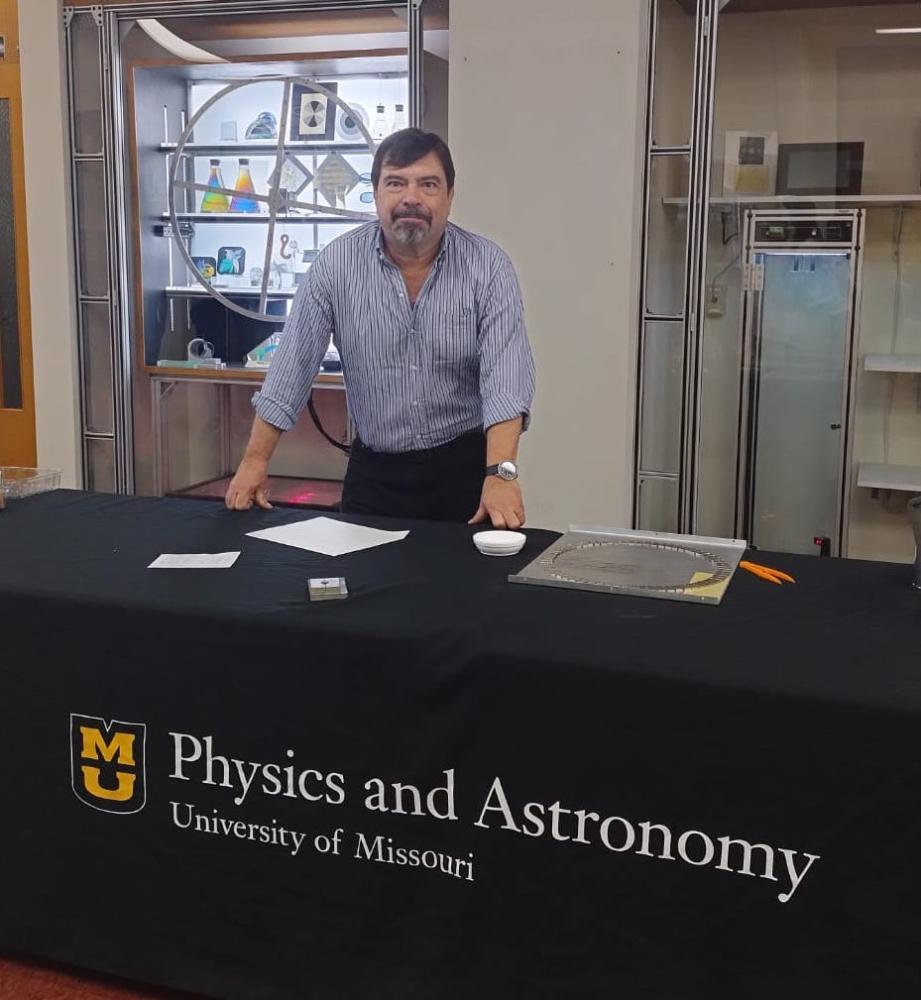
Karim Sapag, Fulbright Scholar-in-Residence
The University of Missouri has been selected to host a Fulbright Scholar-in-Residence from Argentina to enhance the internationalization of Mizzou’s programs and foster a culture of collaboration with institutions across the Americas. Karim Sapag, an expert in physics and chemistry at the Universidad Nacional de San Luis, was selected for the Fulbright award by the Fulbright Foreign Scholarship Board.
The Fulbright Scholar-in-Residence Program brings visiting scholars from abroad to U.S. colleges and universities, helping the institutions internationalize their curricula, campuses and surrounding communities, and diversify the educational experiences of their students, faculty, staff, and stakeholders. Sapag is one of 43 Fulbright Scholars-in-Residence, and among 1,000 outstanding foreign faculty and professionals who will teach and pursue research in the United States for the 2024-2025 academic year through this program.
While at Mizzou, Sapag will teach two physics courses in collaboration with Carlos Wexler, professor of physics, and teach seminars regarding international scientific collaborations, while enhancing outreach to Columbia Public School students at Centro Latino.
About the Fulbright Scholar-in-Residence Program
Since 1946, the Fulbright Program has provided over 400,000 talented and accomplished students, scholars, teachers, artists, and professionals of all backgrounds with the opportunity to study, teach, and conduct research abroad. Fulbrighters exchange ideas, build people-to-people connections, and work to address complex global challenges. Notable Fulbrighters include 62 Nobel Laureates, 89 Pulitzer Prize winners, 80 MacArthur Fellows, 41 heads of state or government, and thousands of leaders across the private, public, and non-profit sectors.
Fulbright is a program of the U.S. Department of State, with funding provided by the U.S. Government. Participating governments and host institutions, corporations, and foundations around the world also provide direct and indirect support to the Program, which has operated in over 160 countries worldwide.